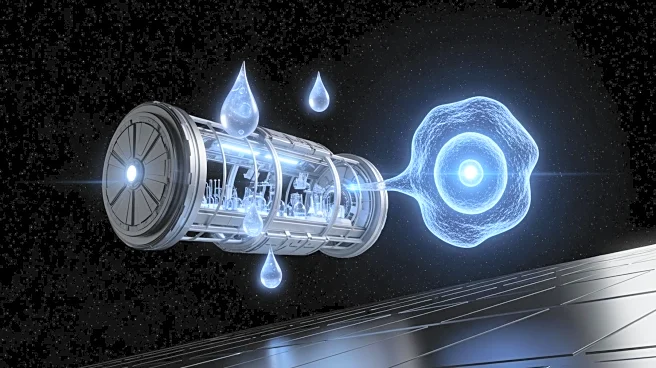What's Happening?
The International Space Station (ISS) has concluded a week of scientific research focusing on fluid physics and stem cell studies. NASA Flight Engineer Zena Cardman conducted experiments in the Destiny and Kibo laboratory modules, examining fluid samples
and processing stem cells. These studies aim to improve in-space manufacturing techniques and explore microgravity's effects on stem cells, potentially leading to advanced treatments for cardiac and neurological disorders. The ISS crew also prepared for the arrival of new crew members and managed cargo from the Northrop Grumman Cygnus XL spacecraft.
Why It's Important?
Research conducted on the ISS contributes significantly to scientific advancements in various fields, including medicine and materials science. The fluid physics experiments may enhance commercial manufacturing processes, while stem cell research could lead to breakthroughs in treating heart and brain conditions. The ongoing collaboration between NASA and international partners on the ISS fosters innovation and strengthens global scientific ties, impacting healthcare and technology industries.
What's Next?
The ISS is set to receive new crew members aboard the Roscosmos Soyuz MS-28 spacecraft, which will dock on November 27. The Cygnus XL spacecraft will be repositioned to accommodate the Soyuz arrival and will remain attached until March 2026. During this period, the ISS will continue its scientific endeavors, including further studies on fluid dynamics and stem cell behavior in microgravity.

















